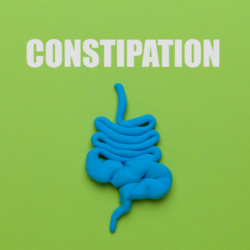Gastrointestinal disorders such as gastro-oesophageal reflux disease (GERD) and stomach acid affect a large number of people. Although drugs such as omeprazole and esomeprazole are commonly prescribed, there are natural alternatives that are just as effective.
[ Warning: The information in this article on natural alternatives to stomach disorders, such as NeoBianacid, GANatura and ERGYGAST, is provided for informational purposes only and should not be construed as a substitute for professional medical advice. Conditions such as Non-erosive Gastroesophageal Reflux Disease (GERD) and Functional Painful Dyspepsia require appropriate diagnosis and treatment by a qualified healthcare professional. Although these products are medical devices, they are not a substitute for comprehensive medical treatment and should only be used on the advice of a healthcare professional. Any decision regarding the use of these products should be made in consultation with a qualified healthcare professional. The information contained in this article is based on scientific data available up to the date of publication and may not reflect the most recent scientific advances. Always consult a doctor or other qualified healthcare professional before starting, modifying or interrupting any medical treatment. Under no circumstances should the information in this article be used for making a diagnosis or instituting medical treatment. ]
What is gastro-oesophageal reflux disease?
Gastro-oesophageal reflux disease, commonly referred to by its acronym GERD, is a common digestive disorder that occurs when gastric acid backs up from the stomach into the oesophagus and throat, a progression that goes against its natural course.
This condition, which may seem trivial at first glance, turns out to be a significant source of discomfort when the acid finds its way into areas where it shouldn’t be. This is because the acid’s contact with the tissues of the oesophagus – the tube that connects the stomach to the throat – causes irritation and inflammation that can lead to an intense burning sensation, similar to that of indigestion or pyrosis, commonly known as heartburn.
An acid reflux attack, although occasional, can cause considerable disruption to a patient’s well-being. When these episodes occur frequently, at a rate of twice a week over several weeks, the condition is said to be chronic and is known as gastro-oesophageal reflux disease or GERD.
It is important to distinguish between occasional episodes of acid reflux, which are often linked to temporary and modifiable conditions, and GERD, which is a persistent pathology reflecting a failure of the body’s mechanisms designed to prevent acid from rising. In the case of chronic GERD, not only is the patient’s quality of life severely affected, but the tissues of the oesophagus can suffer irreversible damage if adequate treatment is not provided.
The conventional approach to managing GERD often relies on the use of drugs such as omeprazole or esomeprazole, which aim to reduce acid production by the stomach. However, growing awareness of the benefits of natural treatments has paved the way for promising alternatives that can offer effective relief without the potential drawbacks associated with pharmacological solutions.
What are the symptoms of GERD?
Gastro-oesophageal reflux disease (GERD) is a condition characterised by a set of distinctive symptoms. Recognition of these signs is essential for early diagnosis and appropriate management.
- Regurgitation: One of the most common signs of GERD is regurgitation. This is the return of acid, food or liquids from the stomach to the throat after meals, often accompanied by a sour or bitter taste in the mouth.
- Burning sensation: Acid, by irritating the tissues of the oesophagus, can cause an intense burning sensation. When this burning is in the chest area, it is commonly known as “heartburn” or pyrosis. If the burning is felt further down, towards the stomach, it is often referred to as acid indigestion.
- Non-cardiac chest pain: Some patients report oesophageal pain that does not manifest as a burning sensation. Because oesophageal pain stimulates the same nerves as heart pain, it can be confused with heart problems.
- Nausea: Acid reflux can cause a feeling of discomfort or nausea, reducing appetite. Patients may also feel that food remains undigested.
- Sore throat: Acidity rising in the throat may cause irritation, manifesting itself as a persistent sore throat. Patients may also experience a lumpy feeling in the throat or difficulty swallowing, symptoms that often occur at night.
- Asthmatic symptoms: GERD can trigger asthma-like symptoms such as chronic coughing, wheezing and shortness of breath. If acid particles enter the airways, they can cause bronchial tubes to contract.
What can make acid reflux worse?
- During the night or when lying down, because gravity no longer works in the stomach’s favour.
- After eating hearty or high-fat meals, which increase intra-abdominal pressure.
- After bending the body forward, which can put pressure on the stomach.
- After smoking or drinking alcohol, which are known to weaken the lower oesophageal sphincter.
Effective management of these symptoms often involves lifestyle changes and sometimes the use of natural remedies, which can offer a beneficial alternative to conventional drug treatments.
Conventional medicines to treat GERD
Several categories of medication are commonly prescribed to treat gastro-oesophageal reflux disease (GERD):
- Antacids and alginates alleviate symptoms but do not induce healing of the oesophageal mucosa in cases of oesophagitis. They are used occasionally.
- Histamine type 2 receptor antagonists (anti-H2), such as cimetidine, ranitidine and famotidine, moderate gastric acid production, soothe symptoms and facilitate healing of the oesophageal mucosa. They are recommended when symptoms are intermittent.
- Proton pump inhibitors (PPIs) – lansoprazole, omeprazole, rabeprazole, esomeprazole, pantoprazole – are highly effective in treating oesophagitis. They act by limiting stomach acid secretions and promoting healing of oesophageal lesions. Treatment is generally administered over a period of around 8 weeks, followed by a reassessment based on symptomatic improvement and the results of additional tests. After this phase, the dosage may be adjusted downwards and a fibroscopy may be considered if symptoms persist. In cases of recurrence of oesophagitis, maintenance treatment with PPIs may be introduced at the minimum effective dose to prevent possible relapses.
What are proton pump inhibitors (PPIs) and what are their negative effects on health?
Proton pump inhibitors (PPIs) are a class of medicines frequently prescribed to reduce the production of gastric acid. They are commonly used in the treatment of GERD (gastro-oesophageal reflux disease), gastric ulcers and other disorders linked to excess acid in the stomach.
Mechanism of action of PPIs: PPIs work by irreversibly blocking the enzyme responsible for gastric acid secretion, the proton pump, located in the stomach wall. This mechanism significantly reduces gastric acidity, helping to relieve GERD symptoms, promote the healing of ulcers and prevent damage to the oesophagus.
Potential negative effects of PPIs: Although PPIs are effective, their long-term use has been associated with a number of potential side effects (1). These include:
- Digestive disorders: Excessive reduction in gastric acidity can impair digestion and absorption of certain nutrients, leading to nutritional deficiencies (2).
- Increased risk of infections: Gastric acid plays a role in fighting pathogens. Reduced acidity can increase the risk of gastrointestinal infections, such as pneumonia or Clostridium difficile.
- Kidney problems: Studies, such as the one published in the Journal of the American Society of Nephrology (2016), have highlighted a possible link between long-term PPI use and an increased risk of chronic kidney disease.
- Bone disorders: Prolonged use of PPIs may be associated with reduced calcium absorption and an increased risk of osteoporosis and fractures, as suggested by research published in the Journal of the American Medical Association (JAMA, 2016).
- Electrolyte imbalances: Cases of abnormally low blood magnesium levels have been observed in patients taking PPIs over a long period.
It is therefore crucial to assess the benefit/risk ratio when prescribing PPIs and to consider other therapeutic approaches, including natural remedies, which may offer an alternative with fewer side effects for the management of GERD and disorders associated with gastric hyperacidity.
What are antacids and what are their negative effects?
Antacids are non-prescription medicines designed to neutralise stomach acid and quickly relieve symptoms such as heartburn, acid digestion, acid reflux or upset stomach. They work by altering the pH of the stomach, providing temporary relief.
- FDA warning: In June 2016, the US Food and Drug Administration (FDA) issued a safety alert regarding certain types of antacids containing aspirin (3). This alert followed reports of serious bleeding associated with the use of these aspirin-containing antacids. The FDA warned of the risk of serious bleeding when using over-the-counter aspirin-containing antacids for the treatment of gastrointestinal symptoms.
- Risks associated with aspirin-containing antacids: Although these products already have warnings on their labels about the risk of bleeding, reports continue to come in about this major safety issue. As a result, the FDA plans to convene an advisory committee of external experts to assess the need for additional measures.
- Products concerned: Among the antacids affected by these warnings are brands such as Alka-Seltzer and other equivalent products marketed under various names. These products are used for the relief of pain and digestive disorders but may present significant health risks.
- Potential adverse effects : Prolonged or frequent use of antacids, particularly those containing aspirin, can lead to complications such as serious gastrointestinal bleeding, particularly in at-risk individuals. In addition, repeated use can disrupt the natural acid-base balance of the stomach and mask the symptoms of more serious conditions.
To safeguard patients’ health, it is essential to provide information on available alternatives that do not contain aspirin and on less risky therapeutic approaches. It is also important to consult a healthcare professional for treatment tailored to the symptoms of reflux or stomach disorders, especially if antacids are used regularly.
What natural alternatives are there for treating GERD?
Let’s explore the natural alternatives available for treating gastro-oesophageal reflux disease.
GANatura
This medical device acts by forming a “protective film” on the mucosa of the oesophagus and stomach. It is composed of natural polysaccharides and minerals. Its effectiveness lies in its triple action: protecting the gastric mucosa, neutralising acidity and preventing irritation.
Instructions for use
For adults and children over 6 years of age, one tablet may be taken as required. In the event of persistent heartburn or difficult digestion, one tablet after each main meal and one before bedtime are recommended.
ERGYGAST
This herbal drinkable stick uses a unique synergy of slippery elm, chamomile and rosemary to soothe the digestive system. 78% of consumers reported a reduction in gastric discomfort thanks to ERGYGAST.
When is this dietary supplement recommended?
It is particularly suitable for a variety of situations, including stress, overweight, and even during pregnancy.
Efficacy comparison
Studies show that natural alternatives such as GANatura and ERGYGAST can be just as effective as conventional medicines, without the associated side effects.
NeoBianacid
NeoBianacid stands out as a clinically proven alternative to proton pump inhibitors (PPIs) such as Omeprazole. Its mechanism of action is based on a unique complex, Poliprotect®, which includes polysaccharides and minerals such as calcium carbonate and Nahcolite. These components work in synergy to provide a buffering and protective effect against gastric acidity.
Instructions for use
The product is formulated in sachets of granules, making it quick and convenient to take. In cases of gastro-oesophageal reflux disease, it is recommended to take one sachet after the main meals and another before bedtime. For the management of dyspepsia or sensations of burning and heaviness, one sachet after meals is recommended.
Efficacy comparison
NeoBianacid has undergone rigorous clinical trials, demonstrating its efficacy compared with PPIs in the treatment of non-erosive reflux and dyspepsia. The study in question was structured in three phases, with specific objectives and different methods of administration. The results show that NeoBianacid does not alter the intestinal microbiota and reduces the typical rebound effect that occurs when PPIs are discontinued.
Clinical benefits and practicality
One of the most remarkable advantages of NeoBianacid is its long-term safety, thanks in particular to the fact that it does not alter the intestinal microbiota. What’s more, its flexible method of use makes it suitable for a variety of situations and individual needs. With NeoBianacid, doctors and pharmacists have a safe and effective alternative for managing gastric disorders.
FAQ
What is NeoBianacid?
NeoBianacid is a medical device formulated from a unique Poliprotect® complex of polysaccharides and minerals. It acts by forming a protective barrier on the gastric mucosa, neutralising acidity and preventing irritation.
How should NeoBianacid be used?
For gastro-oesophageal reflux disease, take one sachet after the main meals and another before bedtime. In the case of dyspepsia or burning sensations, one sachet after meals is recommended.
Is NeoBianacid effective against gastric acidity?
Yes, clinical studies have shown NeoBianacid to be as effective as proton pump inhibitors (PPIs) such as Omeprazole.
Can NeoBianacid be used long-term?
Yes, the product is formulated for long-term safety, following the instructions for use and warnings.
What is GANatura?
GANatura is a medical device that forms a “protective film” over the mucosa of the oesophagus and stomach. It is composed of polysaccharides and natural minerals.
How does ERGYGAST work?
ERGYGAST is a drinkable stick made from plants, including slippery elm, chamomile and rosemary, which works to soothe the digestive system.
When should ERGYGAST be used?
It is particularly suitable for a variety of situations, such as stress and overweight, and can even be used during pregnancy.
How do the effects of GANatura and ERGYGAST compare with those of conventional medicines?
Studies indicate that these products can be just as effective as conventional medicines in treating gastric disorders, without the associated side effects.
Should I consult a doctor before using these products?
It is always advisable to consult a healthcare professional for a precise diagnosis and a personalised treatment plan.
Are there any side effects associated with these products?
NeoBianacid and GANatura have been formulated to minimise side effects. However, in the event of hypersensitivity or allergy to the components, use should be discontinued and a doctor consulted. ERGYGAST is generally well tolerated, but allergic reactions to the herbs it contains are possible.
Sources :
- https://journals.lww.com/ajg/Fulltext/9900/Poliprotect_vs_Omeprazole_in_the_Relief_of.781.aspx
- (1) https://www.ncbi.nlm.nih.gov/pmc/articles/PMC7887997/
- (2) https://www.ncbi.nlm.nih.gov/pmc/articles/PMC6372031/
- (3) https://www.fda.gov/drugs/drug-safety-and-availability/fda-drug-safety-communication-fda-warns-about-serious-bleeding-risk-over-counter-antacid-products





